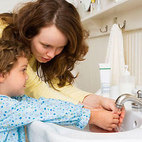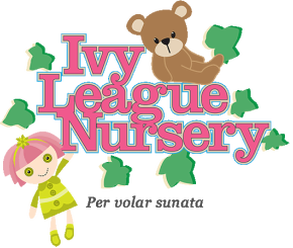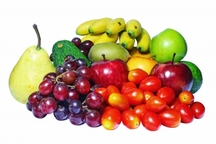The beautiful, long summer days are passing. Evenings are darker and the weather is getting colder. Winter is approaching. The winter months will see a rise in outbreaks of flu and colds plus, other related illnesses which come with diarrhea and vomiting.
Children are prone to catch whatever is going around, as they’re more vulnerable than adults. They’re not clued up about hygiene and healthy eating.
"Children play closely together, and they’re still learning hygiene," says Dr. Judy MacDonald, Calgary’s Medical Officer of Health. "They can easily spread germs from person to person." - Best Health Magazine
It’s up to you to protect them. Teach your child what they should do, to lower the risks of spreading infections.
Put the following measures in place to prevent infections from spreading
Flu and cold germs spread through touch. Or by breathing in small drops of mucus from someone sneezing or coughing, which produces respiratory droplets. The droplets can travel as far as three to six feet and land in your nose, mouth or eyes.
Holding hands with someone who has a cold or flu, or touching something they touched (like the railings on buses and trains) and then touching your mouth, nose or eyes will pass the virus to you. Carry antibacterial wipes or gel in your bag and clean your child’s hands, and yours, when you’re out in public.
Below is a list of some of the precautions you can adapt to protect yourself, baby or child from spreading germs, or picking up germs from others:
· If your baby or child has the flu, a cold, is vomiting, with a high temperature or diarrhea, keep them at home. Otherwise, they’ll spread the infection to other children.
Your child’s nursery isn't obliged to accept them if they’re sick. They have to protect the other children. There is a section under the Terms and Condition’s Policy at Ivy League Nursery under ‘Sickness & Illness’ which states: “Any child who develops an infectious illness must be kept at home. For sickness such as vomiting, diarrhea, discharges from eyes or mouth, conjunctivitis, sore throat and other obvious rashes, there is a 48 hour exclusion period from nursery or until the child is well enough to return.”
In addition, the nursery works within the guidelines of the EYFS which points out their responsibilities. “The provider must promote the good health of children attending the setting. They must have a procedure, discussed with parents and/or carers, for responding to children who are ill or infectious, take necessary steps to prevent the spread of infection, and take appropriate action if children are ill.” - Statutory Framework For The Early Years (3.44)
· Tell your child to wash their hands often with soap and water. Frequent hand washing will get rid of viruses they pick up from touching. Plus, they should always wash their hands after using the bathroom. Use alcohol-free cleansing wipes to clean your baby’s hands regularly throughout the day. You should also wash your hands after wiping your child’s runny nose.
Children are prone to catch whatever is going around, as they’re more vulnerable than adults. They’re not clued up about hygiene and healthy eating.
"Children play closely together, and they’re still learning hygiene," says Dr. Judy MacDonald, Calgary’s Medical Officer of Health. "They can easily spread germs from person to person." - Best Health Magazine
It’s up to you to protect them. Teach your child what they should do, to lower the risks of spreading infections.
Put the following measures in place to prevent infections from spreading
Flu and cold germs spread through touch. Or by breathing in small drops of mucus from someone sneezing or coughing, which produces respiratory droplets. The droplets can travel as far as three to six feet and land in your nose, mouth or eyes.
Holding hands with someone who has a cold or flu, or touching something they touched (like the railings on buses and trains) and then touching your mouth, nose or eyes will pass the virus to you. Carry antibacterial wipes or gel in your bag and clean your child’s hands, and yours, when you’re out in public.
Below is a list of some of the precautions you can adapt to protect yourself, baby or child from spreading germs, or picking up germs from others:
· If your baby or child has the flu, a cold, is vomiting, with a high temperature or diarrhea, keep them at home. Otherwise, they’ll spread the infection to other children.
Your child’s nursery isn't obliged to accept them if they’re sick. They have to protect the other children. There is a section under the Terms and Condition’s Policy at Ivy League Nursery under ‘Sickness & Illness’ which states: “Any child who develops an infectious illness must be kept at home. For sickness such as vomiting, diarrhea, discharges from eyes or mouth, conjunctivitis, sore throat and other obvious rashes, there is a 48 hour exclusion period from nursery or until the child is well enough to return.”
In addition, the nursery works within the guidelines of the EYFS which points out their responsibilities. “The provider must promote the good health of children attending the setting. They must have a procedure, discussed with parents and/or carers, for responding to children who are ill or infectious, take necessary steps to prevent the spread of infection, and take appropriate action if children are ill.” - Statutory Framework For The Early Years (3.44)
· Tell your child to wash their hands often with soap and water. Frequent hand washing will get rid of viruses they pick up from touching. Plus, they should always wash their hands after using the bathroom. Use alcohol-free cleansing wipes to clean your baby’s hands regularly throughout the day. You should also wash your hands after wiping your child’s runny nose.

· If you have a cold or flu and you breastfeed, use a tissue to cover your face when you sneeze or cough. Wash your hands with soap and water for at least 20 seconds, after using the tissue or after touching your face. Another option is to sneeze into your elbow.
· Disinfect doorknobs, toys, work surfaces, table tops and remote controls by using antibacterial wipes or spray. You can make your own disinfectant by mixing 1/4 cup of bleach to one gallon of warm water
Exercise and a Healthy diet will help protect you and your child
If you provide food for your child at nursery, always include healthy
snacks. That is a recommendation of the EYFS. “Where children are provided
with meals, snacks and drinks, they must be healthy, balanced and nutritious.” Statutory Framework For The Early Years (3.47)
Exercise combined with a healthy diet, lots of sleep, water, fruit juice and warm drinks will boost your immune system, and help fight off colds and flus. Drinking fluids will stop dehydration. Encourage your child to eat healthy foods, and cut down on junk food.
There are lots of easy ways to exercise. Walking to the shops or nursery, if possible,
with your child, instead of driving is great for both of you. They can even ride
their scooter, tricycle or bike. Dancing together is fun and a fantastic workout. And
then there’s ice skating for the ultimate fun exercise.
Check out these exercises you can do with your baby:
· Disinfect doorknobs, toys, work surfaces, table tops and remote controls by using antibacterial wipes or spray. You can make your own disinfectant by mixing 1/4 cup of bleach to one gallon of warm water
Exercise and a Healthy diet will help protect you and your child
If you provide food for your child at nursery, always include healthy
snacks. That is a recommendation of the EYFS. “Where children are provided
with meals, snacks and drinks, they must be healthy, balanced and nutritious.” Statutory Framework For The Early Years (3.47)
Exercise combined with a healthy diet, lots of sleep, water, fruit juice and warm drinks will boost your immune system, and help fight off colds and flus. Drinking fluids will stop dehydration. Encourage your child to eat healthy foods, and cut down on junk food.
There are lots of easy ways to exercise. Walking to the shops or nursery, if possible,
with your child, instead of driving is great for both of you. They can even ride
their scooter, tricycle or bike. Dancing together is fun and a fantastic workout. And
then there’s ice skating for the ultimate fun exercise.
Check out these exercises you can do with your baby:

Works hamstrings, hips, and back
A. With your baby on his back and on a mat in front of you, stand with your feet on either side of the mat. Place hands on hips, and slowly bend forward, keeping your back flat.
A. With your baby on his back and on a mat in front of you, stand with your feet on either side of the mat. Place hands on hips, and slowly bend forward, keeping your back flat.

B. Bend further down, and tickle your baby's feet for a count of ten. Bend your knees and slowly roll up, one vertebra at a time. Do five reps.
Click here to see some more exercises you can do with your baby.
Click here to see some more exercises you can do with your baby.
Let’s look at some of the delicious foods that will help your child stay healthy:
· Fruits containing Vitamin C are great for keeping sickness at bay. Be creative to tempt their taste buds. Have you heard of fruit kabobs with a creamy dip? It’s made up of papaya, strawberries and cantaloupe melon. For the dip, mix equal parts cream cheese and marshmallow fluff (you can buy this from most supermarkets).
Also, give them fresh fruits daily, even in small portions. A handful of grapes, a small apple, a slice of melon, strawberries and a banana will do wonders for their health.
· Fruits containing Vitamin C are great for keeping sickness at bay. Be creative to tempt their taste buds. Have you heard of fruit kabobs with a creamy dip? It’s made up of papaya, strawberries and cantaloupe melon. For the dip, mix equal parts cream cheese and marshmallow fluff (you can buy this from most supermarkets).
Also, give them fresh fruits daily, even in small portions. A handful of grapes, a small apple, a slice of melon, strawberries and a banana will do wonders for their health.
· Dress up orange segments to make it yummy. Melt some dark chocolate. Peel the orange and dip the segments in the chocolate. Leave it to cool on a wax paper-lined cookie sheet. When the chocolate is hard, it's time for them to eat and enjoy.
· Include lots of green leafy vegetables like spinach, broccoli, cabbage and kale with their meals. Or better still, let them choose the veggies they would like to eat.
· Peel some cucumbers and carrots and cut into thin sticks to make veggie dippers. You can get different varieties of cream dippers in the supermarkets.
· Green tea is packed with antioxidant and is wonderful for fighting viruses that leads to colds and flu. It’s helped keep the viruses away in my household. Anytime we feel unwell, two to three cups a day always works. Green tea is an acquired taste. So, for your little ones, it’s best to brew it, then let it cool down and chill before giving it to them. Sweeten it with some honey for a nicer taste.
· Let’s not forget the good old-fashioned chicken soup. It’s truly nourishing. According to research, the traditional (home made) chicken soup contains vitamins and nutrients. The anti-inflammatory effect in the soup could ease symptoms of colds and flu.
Making simple changes to your lifestyle will help you and your household stay healthy this winter. If you are exercising regularly and you have a healthy diet, you’ll notice a big difference in your health.
Will you protect others by staying at home if you’re ill or keep your child at home?
Will you teach them about how germs spread through sneezing and coughing?
Is there anything else you do to stay healthy, that’s not on this list? Please share it in the comments below. Your feedback is always appreciated.
· Include lots of green leafy vegetables like spinach, broccoli, cabbage and kale with their meals. Or better still, let them choose the veggies they would like to eat.
· Peel some cucumbers and carrots and cut into thin sticks to make veggie dippers. You can get different varieties of cream dippers in the supermarkets.
· Green tea is packed with antioxidant and is wonderful for fighting viruses that leads to colds and flu. It’s helped keep the viruses away in my household. Anytime we feel unwell, two to three cups a day always works. Green tea is an acquired taste. So, for your little ones, it’s best to brew it, then let it cool down and chill before giving it to them. Sweeten it with some honey for a nicer taste.
· Let’s not forget the good old-fashioned chicken soup. It’s truly nourishing. According to research, the traditional (home made) chicken soup contains vitamins and nutrients. The anti-inflammatory effect in the soup could ease symptoms of colds and flu.
Making simple changes to your lifestyle will help you and your household stay healthy this winter. If you are exercising regularly and you have a healthy diet, you’ll notice a big difference in your health.
Will you protect others by staying at home if you’re ill or keep your child at home?
Will you teach them about how germs spread through sneezing and coughing?
Is there anything else you do to stay healthy, that’s not on this list? Please share it in the comments below. Your feedback is always appreciated.



 RSS Feed
RSS Feed